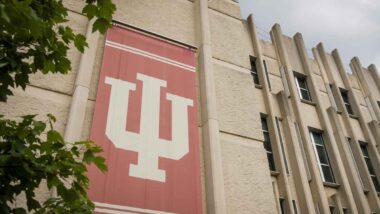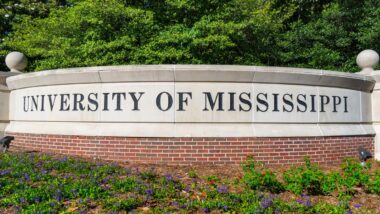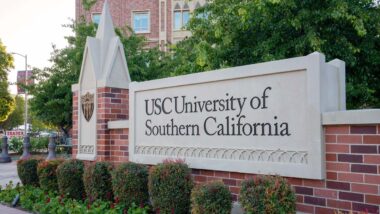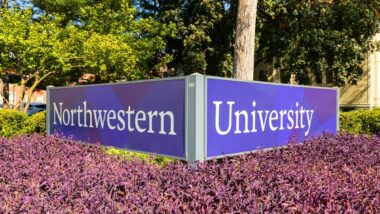
Publishers and retailers including Barnes and Noble, McGraw Hill, Pearson Education, and others have been hit with an antitrust lawsuit accusing them of conspiring to force college and graduate students to use their digital coursework materials instead of shopping elsewhere.
Alexandra Pelletier, M. Samantha Pak, and Joan Padden are not the first students to file antitrust claims against the publishers — their publishing anti-competition class action lawsuit follows two others filed against Barnes and Noble College Booksellers and others.
In the most recent legal news, the students say that the publishers conspired to use the power their publishing industry monopoly to prevent students from accessing course materials from any source but the publishers themselves.
The Barnes & Noble class action lawsuit explains that Pearson Education, Cengage Learning, McGraw-Hill Global Education Holdings, Educational Publishers Enforcement Group, Barnes & Noble Education, Barnes & Noble College Booksellers, and Follett Higher Education Group, have developed a system called “Inclusive Access,” through which students can gain access to their course materials digitally, via an access code.
In contrast to its name, the students argue that Inclusive Access is far from accessible and requires students to pay more for their course material than they otherwise would.
Providing background for their complaints around the Inclusive Access, the students explain that, together, the publishers represent around 80% of the market for course materials. Additionally, the retailers reportedly are the largest operators of on-campus bookstores. Allegedly, these retailers including Barnes and Noble College Booksellers operate around 57% of on-campus bookstores in the country.
The publishers allegedly developed the Inclusive Access system in response to various market changes that, in recent years, have cut into their educational material profits. The students note that one major threat to these publishers is the growing used book market, made more prevalent and accessible through online channels.
The students point to sites like Amazon and Chegg, which allow students to buy college textbooks easily for much lower prices than for which they are offered new.

In response, the publishers have reportedly implemented a range of strategies to try to corner students into buying new text books.
The Barnes & Noble class action lawsuit argues that in recent years, publishers have started printing new versions of college textbooks almost each year, each version of which only contains slight revisions for the last version.
In other instances, publishers reportedly included various workbooks in the textbooks themselves, making it harder to re-sell or re-use a textbook.
The students note that since the 1970s, textbook prices have increased significantly. However, the online accessibility of used textbooks still posed such a threat to the publishers’ and retailers’ profits that they developed an even more extreme strategy to corner students into purchasing from them.
Allegedly, the retailers and publishers have partnered with a range of colleges and universities to offer course materials only through Inclusive Access, an online platform that includes course text books, supplementary materials, and workbooks all online.
According to the class action lawsuit, if a course uses Inclusive Access, students do not have the option to shop around for the best textbook deal. Instead, they supposedly have no choice but to purchase the Inclusive Access code either directly from the publisher or from their college bookstore, contracted with the sellers.
The students assert that they and many other students around the country were financially injured by the publishers’ and sellers’ conduct. They assert that the publishers and sellers like Barnes & Noble College Booksellers used their considerable market power to band together and create a system that forced students into buying their products.
The students explain that, if they had a choice about where to buy their course material, they would not have used Inclusive Access or would not have agreed to pay as much as they did for it.
Highlighting the stakes of this injury, the students note that the student loan climate in the United States is often referred to as a crisis. They say that a large portion of these loans are often taken out to cover course materials. Allegedly, the publishers and sellers like Barnes & Noble College Booksellers are illegally putting pressure on students who are already in a financial bind when accessing education.
Have you experienced an increase in course materials and textbook costs? Share your experience in the comments below.
The students are represented by Keith J. Verrier and Austin B. Cohen of Levin Sedran & Berman LLP.
The Barnes & Noble College Booksellers Antitrust Class Action Lawsuit is Alexandra Pelletier, et al. v. Pearson Education Inc., et al., Case No. 3:20-cv-09315, in the U.S. District Court for the District of New Jersey.
Read About More Class Action Lawsuits & Class Action Settlements:
Cavalry Portfolio Services TCPA Class Action Settlement
Colorado School District Joins Juul Lawsuit
ATTORNEY ADVERTISING
Top Class Actions is a Proud Member of the American Bar Association
LEGAL INFORMATION IS NOT LEGAL ADVICE
Top Class Actions Legal Statement
©2008 – 2026 Top Class Actions® LLC
Various Trademarks held by their respective owners
This website is not intended for viewing or usage by European Union citizens.















94 thoughts onBarnes and Noble College Booksellers Face Class Action Lawsuit
add me please
Add me please
I had this same issue when in school recently I couldn’t really resell my books unless I did so directly after the semester and they always required extra material on a platform with McGraw Hill and we had to use the materials or we would not be allowed to pass. It was quite unfair. And so many times they changed the books when I had a retake once it was the exact same material only difference was the cover of the book. It was so unfair how they treated us at Bethel University of Mishawaka IN
Hello I’m currently in school I’ve been in school for the past six years and I’ve been getting books to Barnes and Nobles and yes it seems like this year-long the books are so much more expensive and also I’m getting any type of tuition assistance so I have to pay cash
PLease add me
Add me